In 2013, two-year-old Naomi Elbaz in Israel died after drinking a liquid refill for electronic cigarette. The doctors were unable to revive her despite all efforts. She was being watched over by her grandparents, when she sneaked into her grandfather's room and downed the fatal dose. A few minutes later she collapsed. She was hospitalised but succumbed a few hours later.
In 2013, two-year-old Naomi Elbaz in Israel died after drinking a liquid refill for electronic cigarette. The doctors were unable to revive her despite all efforts. She was being watched over by her grandparents, when she sneaked into her grandfather's room and downed the fatal dose. A few minutes later she collapsed. She was hospitalised but succumbed a few hours later.
In spite of evidence that e-cigarettes can cause death and poisoning, at a press briefing last month in American Association of Advancement of Sciences (AAAS), a three-member panel consisting of Wilson Compton, deputy director of National Institute of Drug Abuse, US Department of Health and Human Services; Deborah Arnott, chief executive, Action on Smoking and Health; and Dr Kevin Bridgman, CMO and director, Nicovations, stirred a hornet's nest by endorsing e-cigarettes as being useful in possible de-addiction techniques.
On further questioning, Compton later told dna that there was little regulation over open availability of liquid refill vials in the US. Also, they are freely available online to be ordered anywhere around the world.
“There have been reported deaths due to consumption of nicotine vials, which are freely available in the mom and pop shops of the US. They are pre-loaded cartridges which if downed can cause death or poisoning,” he agreed.
E-cigarettes are not regulated under the Control of Tobacco and other Products Act in India. They do not fall under the regulation of US Food and Drug Administration (US-FDA) either. “It has been taking the US-FDA a while to form laws that can bring e-cigarettes under its control. Processes have been moving very slowly,” observed Compton.
But health experts in India are critical of US' approach and attitude towards e-cigarettes.
“Certain group of doctors and scientists have always been in support of smokers switching from cigarettes to ENDS. The issue, however, is what happens when those who have never smoked also get hooked to ENDS and become addicts,” said Dr PC Gupta, director, Healis Sekhsaria Institute of Public Health, Navi Mumbai.
“The figures of adolescents getting hooked to ENDS compiled by the US are the worst of their kind. This is because e-cigarettes are marketed to youths just like normal cigarettes. Images of sports, glamour, fashion and sex are linked to ENDS to boost its Internet sales. Even though, the US has banned TV advertisements of ENDS, in a recent survey, 200 YouTube videos of ENDS were screened and it was noticed that 95% were in favour of e-cigarettes as opposed to 5% that were against it or neutral. In this light, the stand taken by the panel at AAAS is very worrisome.”
Arnott, however, said, “There are 1.4 million smokers in the UK, we would like them to switch completely to e-cigarettes. I'd rather they experiment with e-cigarettes than smoke.”
The problem before public health officials is minimising availability of products for adolescents and maximising its usage for smokers. “This is a challenging issue, but 6 million tobacco-related deaths occur globally.
Cigarette smoke contains 5,000 chemicals, 65 carcinogens, and carbon monoxide, which is a byproduct of tobacco combustion. How do we provide smokers the nicotine they crave? I would not support taking them off the market currently,” argued Compton.
There has also been a debate on whether prescribing e-cigarettes as medicine for de-addiction be considered and that they only be sold in pharmacies on presentation of a proper prescription, but there has been no headway in this regard.
Most e-cigarette companies do not fully list the ingredients that may potentially be poisonous. “We should ensure that they contain pharma-grade nicotine and exclude those chemical flavours that cause cancer. But as of now, this is not being practised,” said Bridgman.
While India has little data to understand the usage of e-cigarettes in the population, the US conducted Monitoring the Future Study in 2014 to gauge use of ENDS in schoolgoing children. The findings were alarming.
The study indicated that non-smoking adolescents may get addicted to nicotine through e-cigarettes, which in turn could lead to the use of regular cigarettes, 8% of eighth graders, 16% of tenth graders, and 17% of 12th graders had used e-cigarettes in the past month before the study was conducted. The students were more likely to have used e-cigarettes than regular cigarettes, revealed Compton.
Indian researchers say the irony of the West is that in spite of glaring data on huge popularity of ENDS in the population, little is being done to control the use of e-cigarettes.
Around the world
Canada: E-cigarettes can be used for personal consumption but cannot be sold in the market.
Korea: They are legally taxed like tobacco products.
India: They are sold in paan shops but in certain states are banned by the state-run FDA, including Maharashtra. India is contemplating a ban.
In Brazil, China and Hong Kong, e-cigarettes are illegal.
Europe has regulated e-cigarettes under the Tobacco Products Directive; their advertising is prohibited in the media, but they are openly sold in shops.
![submenu-img]() Firing at Salman Khan's house: Shooter identified as Gurugram criminal 'involved in multiple killings', probe begins
Firing at Salman Khan's house: Shooter identified as Gurugram criminal 'involved in multiple killings', probe begins![submenu-img]() Salim Khan breaks silence after firing outside Salman Khan's Mumbai house: 'They want...'
Salim Khan breaks silence after firing outside Salman Khan's Mumbai house: 'They want...'![submenu-img]() India's first TV serial had 5 crore viewers; higher TRP than Naagin, Bigg Boss combined; it's not Ramayan, Mahabharat
India's first TV serial had 5 crore viewers; higher TRP than Naagin, Bigg Boss combined; it's not Ramayan, Mahabharat![submenu-img]() Vellore Lok Sabha constituency: Check polling date, candidates list, past election results
Vellore Lok Sabha constituency: Check polling date, candidates list, past election results![submenu-img]() Meet NEET-UG topper who didn't take admission in AIIMS Delhi despite scoring AIR 1 due to...
Meet NEET-UG topper who didn't take admission in AIIMS Delhi despite scoring AIR 1 due to...![submenu-img]() DNA Verified: Is CAA an anti-Muslim law? Centre terms news report as 'misleading'
DNA Verified: Is CAA an anti-Muslim law? Centre terms news report as 'misleading'![submenu-img]() DNA Verified: Lok Sabha Elections 2024 to be held on April 19? Know truth behind viral message
DNA Verified: Lok Sabha Elections 2024 to be held on April 19? Know truth behind viral message![submenu-img]() DNA Verified: Modi govt giving students free laptops under 'One Student One Laptop' scheme? Know truth here
DNA Verified: Modi govt giving students free laptops under 'One Student One Laptop' scheme? Know truth here![submenu-img]() DNA Verified: Shah Rukh Khan denies reports of his role in release of India's naval officers from Qatar
DNA Verified: Shah Rukh Khan denies reports of his role in release of India's naval officers from Qatar![submenu-img]() DNA Verified: Is govt providing Rs 1.6 lakh benefit to girls under PM Ladli Laxmi Yojana? Know truth
DNA Verified: Is govt providing Rs 1.6 lakh benefit to girls under PM Ladli Laxmi Yojana? Know truth![submenu-img]() Remember Jibraan Khan? Shah Rukh's son in Kabhi Khushi Kabhie Gham, who worked in Brahmastra; here’s how he looks now
Remember Jibraan Khan? Shah Rukh's son in Kabhi Khushi Kabhie Gham, who worked in Brahmastra; here’s how he looks now![submenu-img]() From Bade Miyan Chote Miyan to Aavesham: Indian movies to watch in theatres this weekend
From Bade Miyan Chote Miyan to Aavesham: Indian movies to watch in theatres this weekend ![submenu-img]() Streaming This Week: Amar Singh Chamkila, Premalu, Fallout, latest OTT releases to binge-watch
Streaming This Week: Amar Singh Chamkila, Premalu, Fallout, latest OTT releases to binge-watch![submenu-img]() Remember Tanvi Hegde? Son Pari's Fruity who has worked with Shahid Kapoor, here's how gorgeous she looks now
Remember Tanvi Hegde? Son Pari's Fruity who has worked with Shahid Kapoor, here's how gorgeous she looks now![submenu-img]() Remember Kinshuk Vaidya? Shaka Laka Boom Boom star, who worked with Ajay Devgn; here’s how dashing he looks now
Remember Kinshuk Vaidya? Shaka Laka Boom Boom star, who worked with Ajay Devgn; here’s how dashing he looks now![submenu-img]() DNA Explainer: How Iranian projectiles failed to breach iron-clad Israeli air defence
DNA Explainer: How Iranian projectiles failed to breach iron-clad Israeli air defence![submenu-img]() DNA Explainer: What is India's stand amid Iran-Israel conflict?
DNA Explainer: What is India's stand amid Iran-Israel conflict?![submenu-img]() DNA Explainer: Why Iran attacked Israel with hundreds of drones, missiles
DNA Explainer: Why Iran attacked Israel with hundreds of drones, missiles![submenu-img]() What is Katchatheevu island row between India and Sri Lanka? Why it has resurfaced before Lok Sabha Elections 2024?
What is Katchatheevu island row between India and Sri Lanka? Why it has resurfaced before Lok Sabha Elections 2024?![submenu-img]() DNA Explainer: Reason behind caused sudden storm in West Bengal, Assam, Manipur
DNA Explainer: Reason behind caused sudden storm in West Bengal, Assam, Manipur![submenu-img]() Firing at Salman Khan's house: Shooter identified as Gurugram criminal 'involved in multiple killings', probe begins
Firing at Salman Khan's house: Shooter identified as Gurugram criminal 'involved in multiple killings', probe begins![submenu-img]() Salim Khan breaks silence after firing outside Salman Khan's Mumbai house: 'They want...'
Salim Khan breaks silence after firing outside Salman Khan's Mumbai house: 'They want...'![submenu-img]() India's first TV serial had 5 crore viewers; higher TRP than Naagin, Bigg Boss combined; it's not Ramayan, Mahabharat
India's first TV serial had 5 crore viewers; higher TRP than Naagin, Bigg Boss combined; it's not Ramayan, Mahabharat![submenu-img]() This film has earned Rs 1000 crore before release, beaten Animal, Pathaan, Gadar 2 already; not Kalki 2898 AD, Singham 3
This film has earned Rs 1000 crore before release, beaten Animal, Pathaan, Gadar 2 already; not Kalki 2898 AD, Singham 3![submenu-img]() This Bollywood star was intimated by co-stars, abused by director, worked as AC mechanic, later gave Rs 2000-crore hit
This Bollywood star was intimated by co-stars, abused by director, worked as AC mechanic, later gave Rs 2000-crore hit![submenu-img]() IPL 2024: Rohit Sharma's century goes in vain as CSK beat MI by 20 runs
IPL 2024: Rohit Sharma's century goes in vain as CSK beat MI by 20 runs![submenu-img]() RCB vs SRH IPL 2024 Dream11 prediction: Fantasy cricket tips for Royal Challengers Bengaluru vs Sunrisers Hyderabad
RCB vs SRH IPL 2024 Dream11 prediction: Fantasy cricket tips for Royal Challengers Bengaluru vs Sunrisers Hyderabad ![submenu-img]() IPL 2024: Phil Salt, Mitchell Starc power Kolkata Knight Riders to 8-wicket win over Lucknow Super Giants
IPL 2024: Phil Salt, Mitchell Starc power Kolkata Knight Riders to 8-wicket win over Lucknow Super Giants![submenu-img]() IPL 2024: Why are Lucknow Super Giants wearing green and maroon jersey against Kolkata Knight Riders at Eden Gardens?
IPL 2024: Why are Lucknow Super Giants wearing green and maroon jersey against Kolkata Knight Riders at Eden Gardens?![submenu-img]() IPL 2024: Shimron Hetmyer, Yashasvi Jaiswal power RR to 3 wicket win over PBKS
IPL 2024: Shimron Hetmyer, Yashasvi Jaiswal power RR to 3 wicket win over PBKS![submenu-img]() Watch viral video: Isha Ambani, Shloka Mehta, Anant Ambani spotted at Janhvi Kapoor's home
Watch viral video: Isha Ambani, Shloka Mehta, Anant Ambani spotted at Janhvi Kapoor's home![submenu-img]() This diety holds special significance for Mukesh Ambani, Nita Ambani, Isha Ambani, Akash, Anant , it is located in...
This diety holds special significance for Mukesh Ambani, Nita Ambani, Isha Ambani, Akash, Anant , it is located in...![submenu-img]() Swiggy delivery partner steals Nike shoes kept outside flat, netizens react, watch viral video
Swiggy delivery partner steals Nike shoes kept outside flat, netizens react, watch viral video![submenu-img]() iPhone maker Apple warns users in India, other countries of this threat, know alert here
iPhone maker Apple warns users in India, other countries of this threat, know alert here![submenu-img]() Old Digi Yatra app will not work at airports, know how to download new app
Old Digi Yatra app will not work at airports, know how to download new app
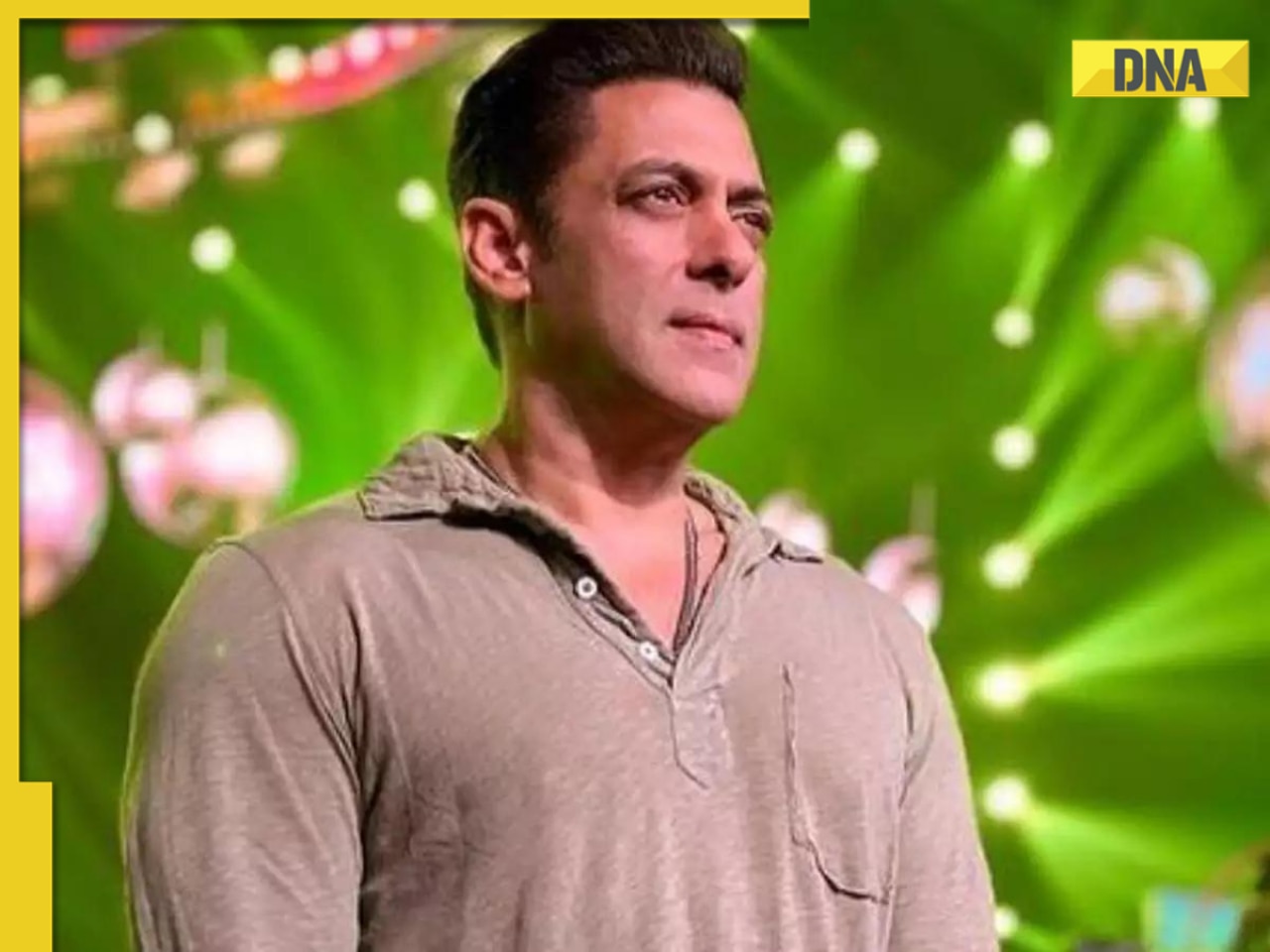
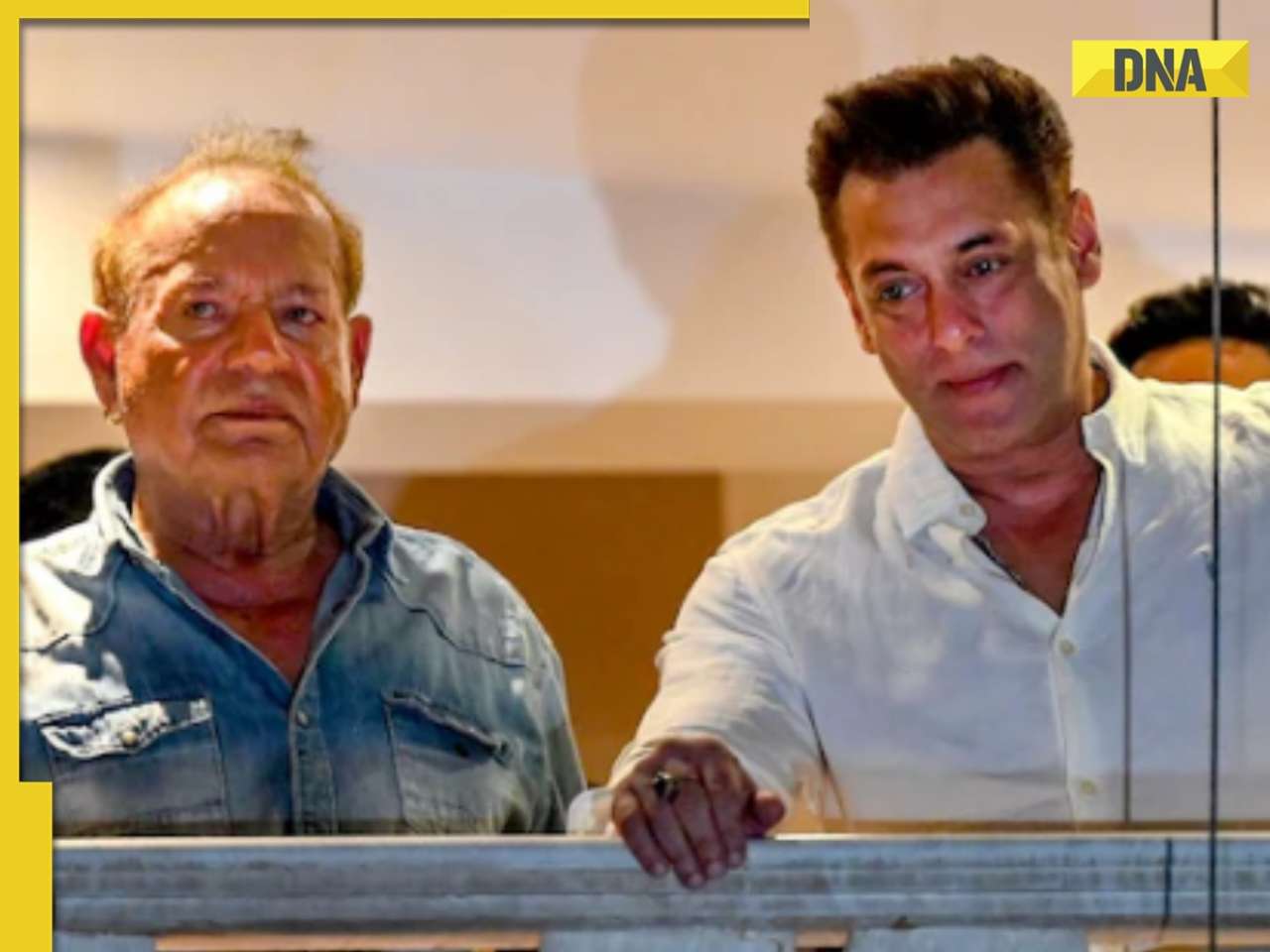
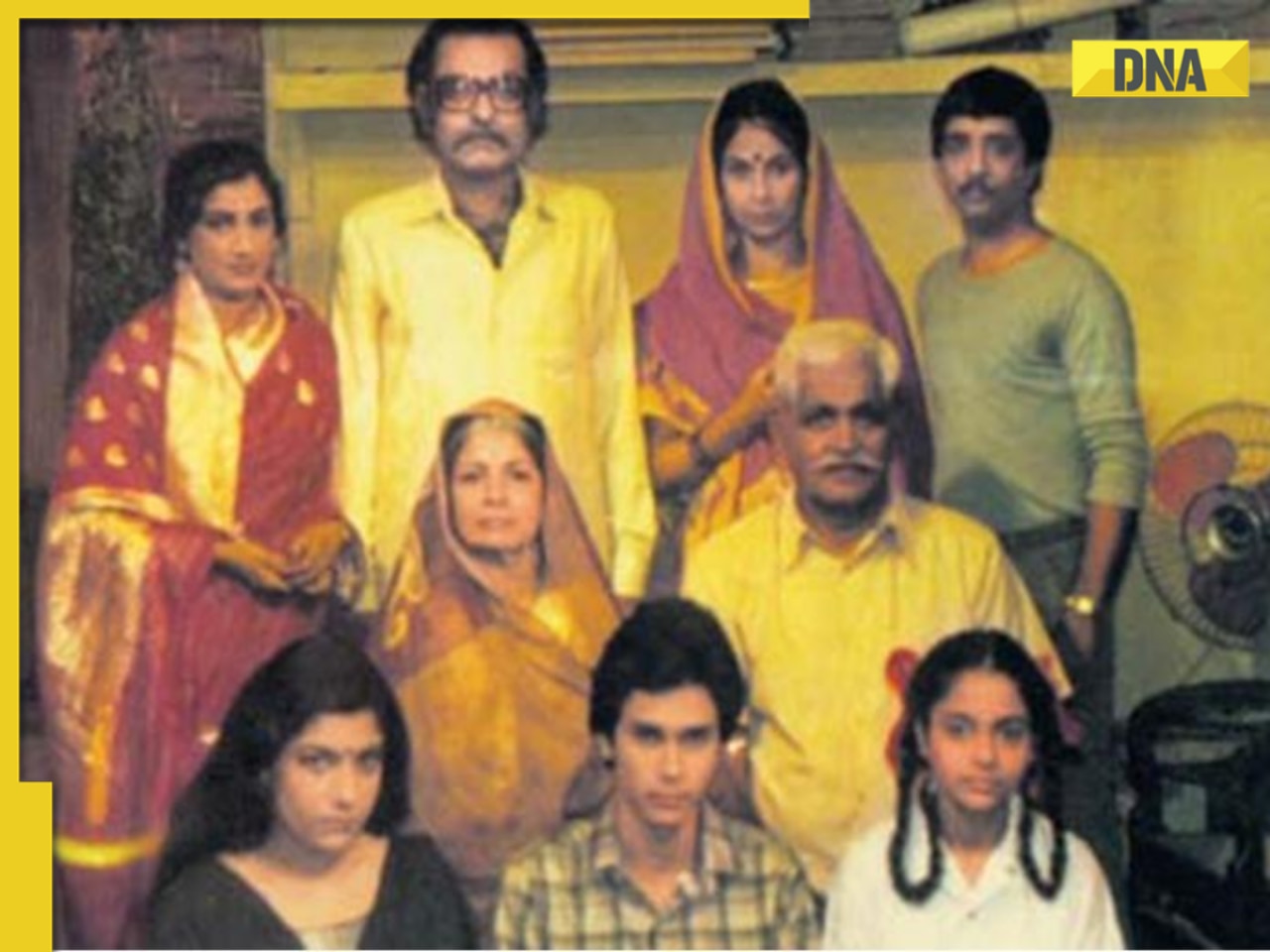
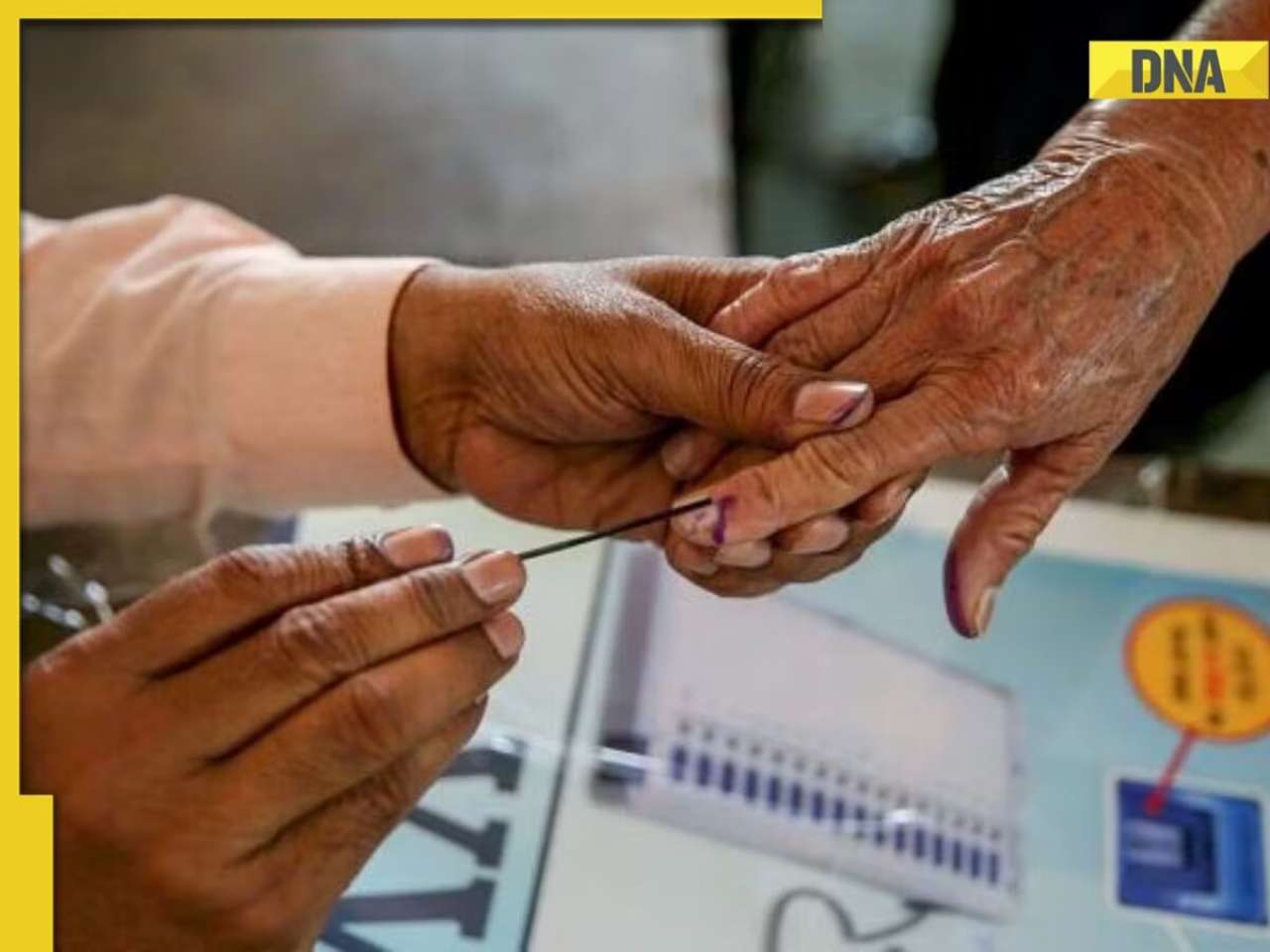
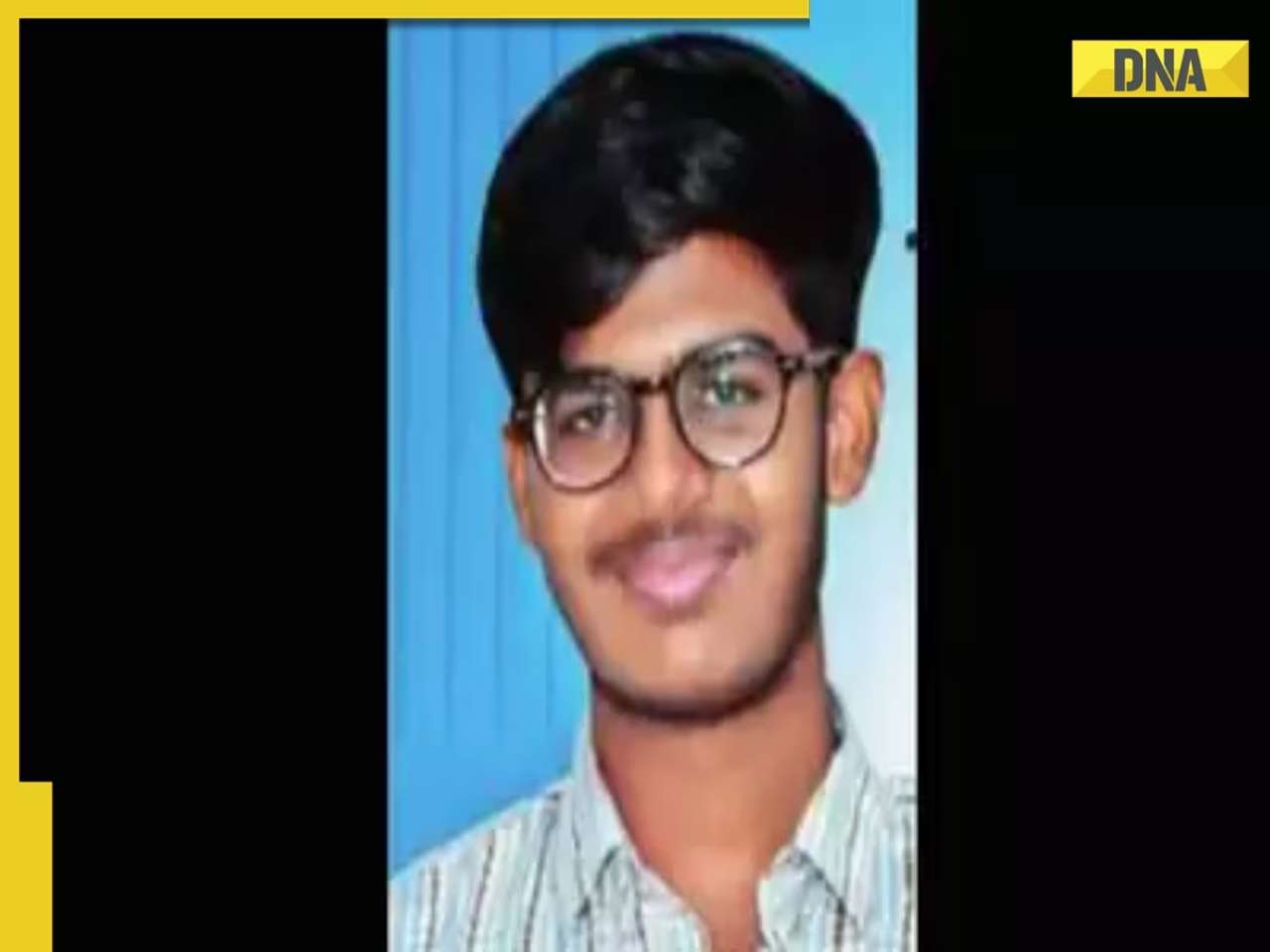





















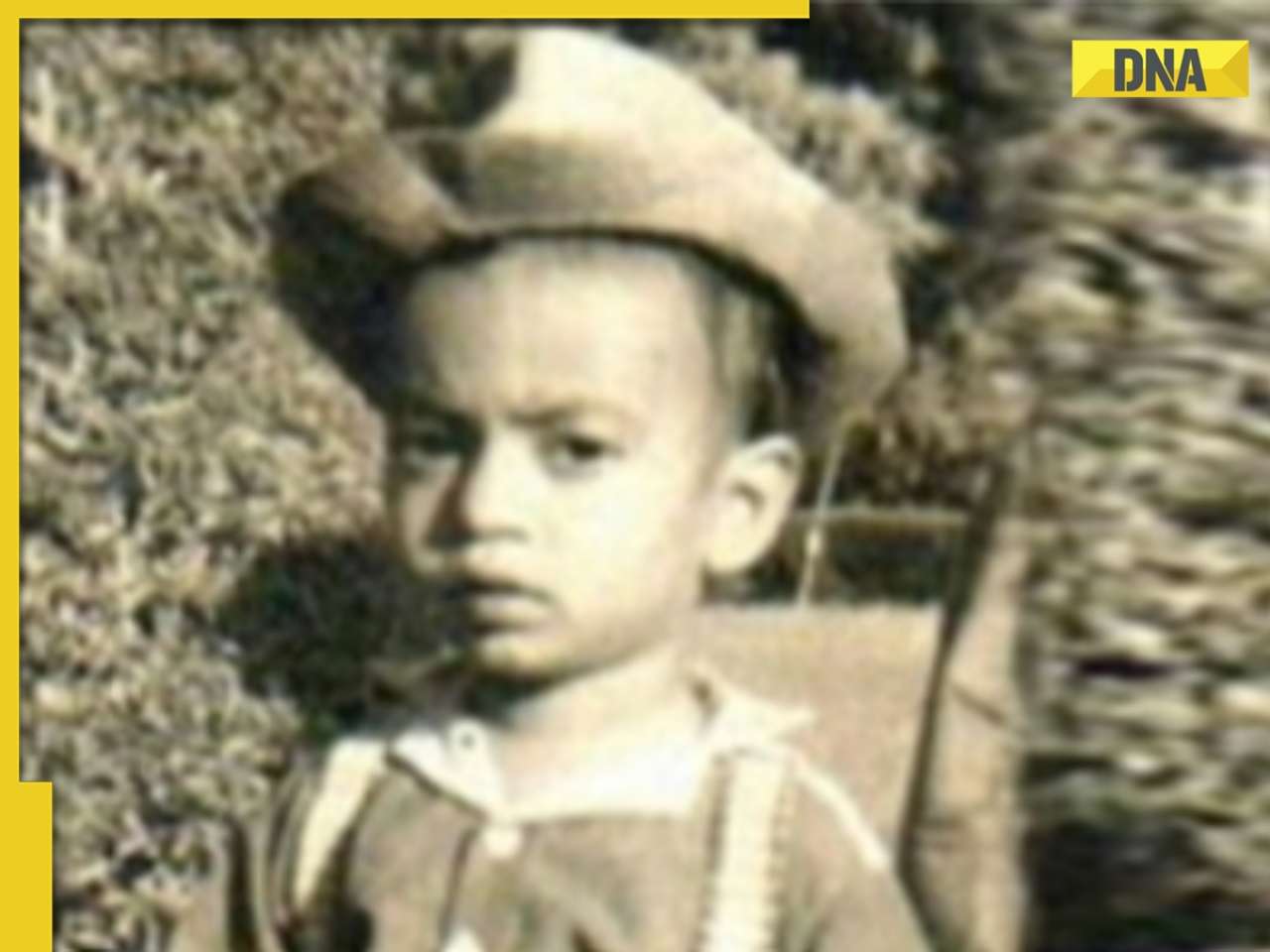











)




)
)
)
)
)
)